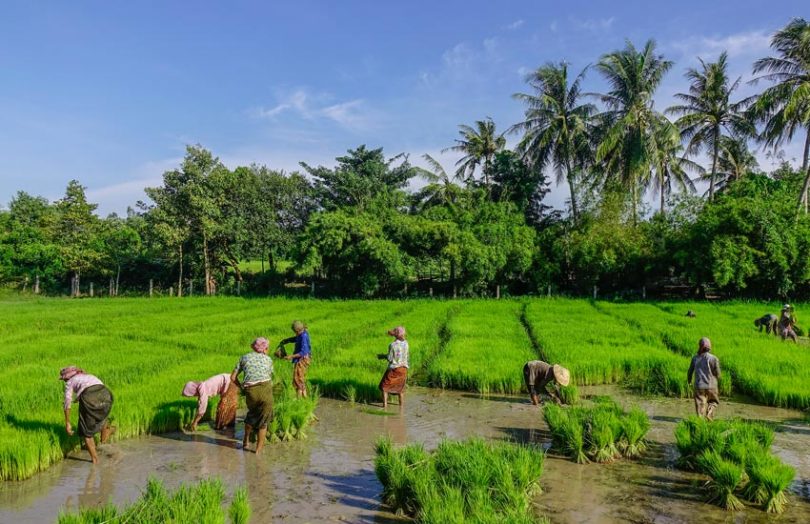Today, Fujitsu announced a partnership with Switzerland-based startup Rice Exchange (Ricex) for its blockchain rice trading platform. The Ricex platform is scheduled to launch in 2020.
With a global market value of $450 billion, rice is one of the most traded agricultural commodities in the world. But commodity trade is marred with inefficiencies due to paper-based transactions, which are slow and prone to error.
The problem the industry is facing is due to the wide variety of rice. Each strain differs in quality, taste and fragrance, all of which decides the price of rice. Currently, Japonica and Basmati have the highest market share, but selling substandard varieties under these names is not uncommon.
Rice is the staple food of nearly half of the world’s population and is vital for food security. Its trade involves a lot of government intervention, tariffs and subsidies. With an already convoluted system, a lack of transparency and traceability leads to contractual breaches and insurance claims.
Ricex is digitalizing rice trade using blockchain and is creating a transparent ecosystem of importers, exporters, wholesalers, producers, regulators and other stakeholders.
The blockchain platform aims to streamline the trading process by providing insurance, shipping information, inspections and automated settlement to participants. “The Rice Exchange platform brings transparency, efficiency and security to the global rice trade,” says Stephen Edkins, CEO of Ricex.
Meanwhile, the Ricex platform also allows buyers to search for rice certified as sustainably grown. While this is not the prime objective of the project, the platform provides rice provenance to enable producers to earn a premium for their product.
“People are not just buying long-grain, white rice anymore; they want to have a choice of different rice. These sell for higher prices, but each time you buy one of these varieties, you want to know that you’ll get what you paid for. It comes back to having transparency in the supply chain,” Stephen Edkins, co-founder and CEO of Ricex told the Financial Times.
Fujitsu’s role is as an integration partner, and it’s delivering a production-ready solution built on Hyperledger Fabric. The Fujitsu Blockchain Innovation Centre relies on Microsoft Azure for providing hosting services, which Ricex aims to leverage for its platform.
In July, the blockchain startup partnered with DUCAT Maritime to offer to ship small and medium-sized lots to rice traders, without chartering an entire vessel themselves.
Last year, Oxfam launched a blockchain project for Cambodian rice farmers to get them better prices for their produce. In China, Alibaba and ANT are working with Wuchang Municipal Government to help track and authenticate Wuchang rice.
The Ricex platform is one of several initiatives exploring blockchain for streamlining commodities trading.
Commodities blockchain projects:
| Commodity | Consortium/ Company |
| Agribusiness | ABCCD: ADM, Bunge, Cargill, COFCO, Dreyfus, Glencore |
| Agribusiness | Global Commodity Technology Association (GCTA) standards |
| Sugar | Al Khaleej Sugar |
| Oil | VAKT |
| Gold, Silver | Tradewind |
| Metals | The Mining and Metals Blockchain Initiative WEF, Glencore, Tata Steel, Anglo American/De Beers + |
| Metals | Minehub |
| Cobalt | Responsible Sourcing Blockchain Network (RSBN) IBM, VW, Ford + |
| Tantalum | Circulor |
| Trade finance | komgo |






